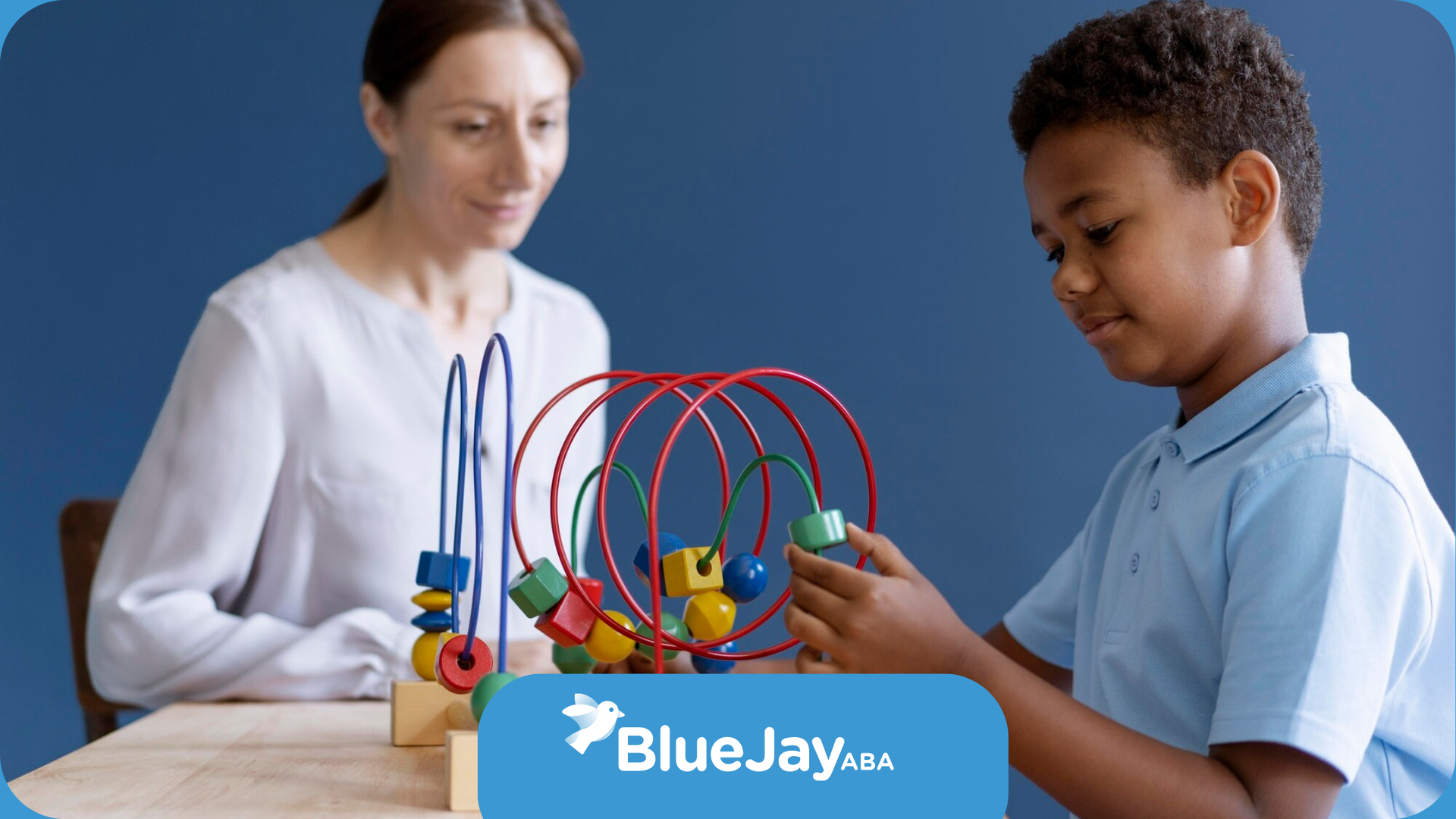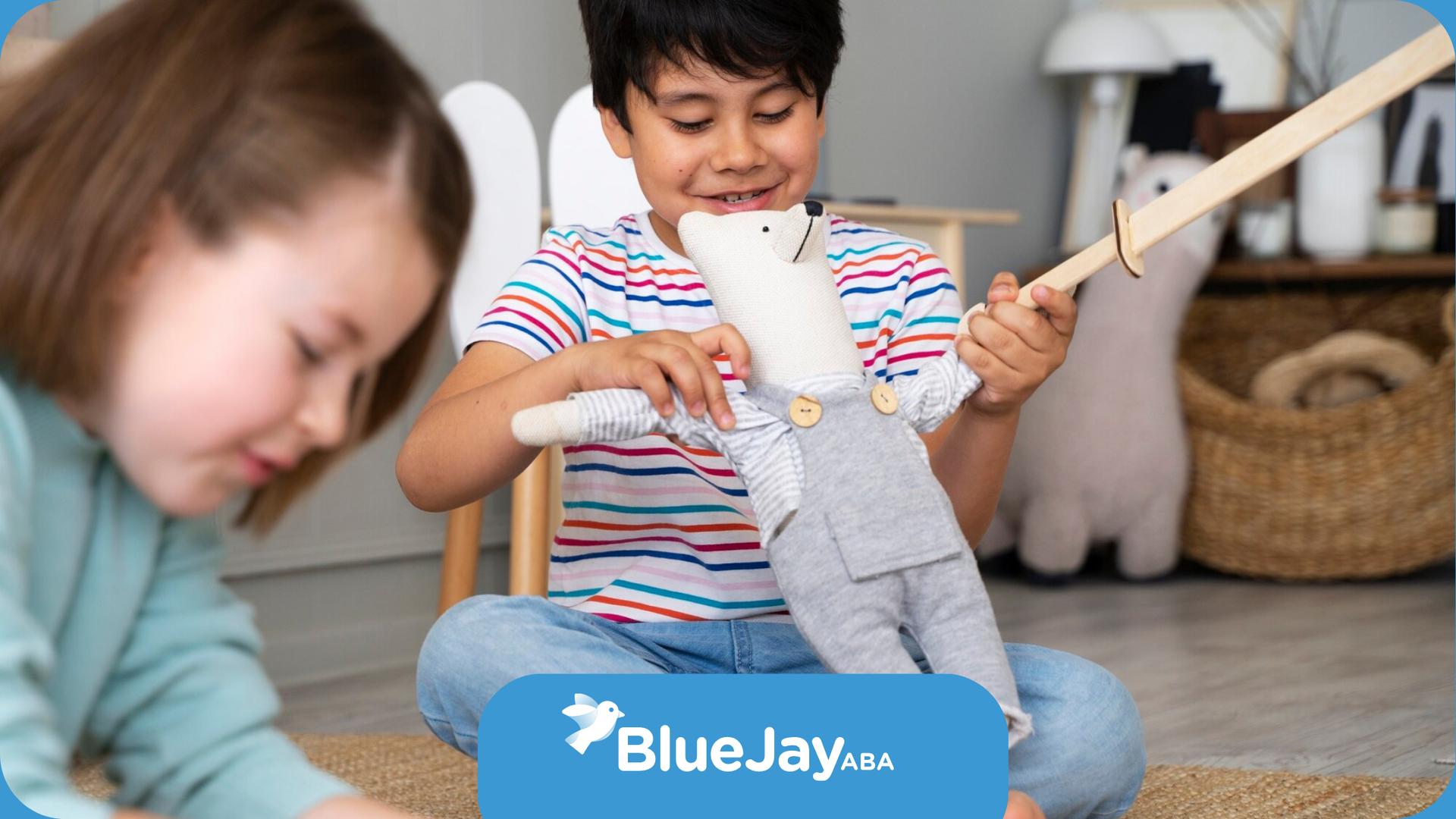Understanding The Importance of Routine in Autism Care
In autism care, having daily routines is very important. Autism is a complex disorder that affects how people communicate, interact with others, and behave. That's why routines matter so much. A daily routine that is structured and predictable can give a sense of stability. This helps people with autism to handle their everyday lives with more confidence and independence.
The Critical Role of Routine in Autism Spectrum Disorder
For people with autism spectrum disorder, life can feel confusing and hard to handle. They may be sensitive to sights, sounds, and other feelings. Communication can be tough, and social situations can cause worry. Having routines helps to create order and predictability. When clear plans and schedules are in place, it can lower stress and prevent anxious moments. This leads to a calmer and easier environment for them.
How Routine Benefits Cognitive and Emotional Development
A good routine can help individuals with autism spectrum disorder in many ways. First, it helps them grow cognitively by offering a predictable way to learn and practice new skills. The repetition and consistency in routines strengthen their ability to focus, remember, and solve problems.
In addition, routines are important for emotional health. Having a planned routine reduces stress and anxiety. This predictability allows individuals to feel safer and more at ease. As a result, they can manage their emotions better, learn healthy ways to cope, and enjoy positive social interactions.
Finally, routines give individuals a feeling of control and success in their environment. When they know what will happen and when they can prepare for changes and get involved in daily activities. This boosts their self-esteem and independence.
The Impact of Routine on Reducing Anxiety and Improving Stability
One big benefit of having routines is how they help reduce anxiety. Daily life can be unpredictable. This can be hard for people with autism, causing higher stress levels and anxiety. Routines create a sense of stability. They make the day more predictable, which can lower anxiety.
When autistic individuals know what will happen in their day, they feel calmer and more in control. This stability also helps families. With fewer unexpected changes and meltdowns, family life can be more enjoyable and peaceful.
Additionally, routines help with managing emotions. This can be tough for many on the spectrum. By having consistent schedules, these individuals can better handle their feelings. Less stress and anxiety make it easier to deal with emotions positively.
Establishing Effective Routines for Autistic Individuals
Creating routines for autistic individuals should be a careful and personal process. It's important to know that what works for one person may not work for another. Routines need to fit each person’s specific strengths, challenges, and sensory needs.
Good routines should blend smoothly into a person's life. They should cover important daily activities and also allow for changes when surprises happen. This way, the routine can provide stability and support without being too strict.
Identifying Core Areas for Routine Development
When making routines, it is important to find the main areas that matter most to the person. A good place to start is by looking at daily activities like waking up, eating meals, cleaning up, playtime, and going to bed. By making steady routines around these basic parts of daily life, you create a strong base for stability and predictability.
Once the person feels fine with these main routines, you can slowly add other areas. This can include things like homework, therapy sessions, or after-school activities. Keep in mind that adding new skills or routines should be done slowly and patiently.
During this time, watch how the person reacts so you can adjust the routines as needed. Pay attention to their likes, strengths, and any sensory needs they may have. Getting the person involved in making and changing their routines can help them feel more in charge and take part actively. This teamwork can make the routine work better and give the person more independence.
Strategies for Implementing Consistent Daily Schedules
Creating a clear daily schedule is key to having a successful routine. Changing from a flexible schedule to a more structured one needs careful planning. Here are some good strategies:
- Visual Schedule: Use pictures or symbols to show the order of daily activities.
- Timers: Use timers to show time passing, which helps with moving between tasks and finishing them.
- Positive Reinforcement: Celebrate successes and good behavior with praise, rewards, or fun activities. This helps people stick to the routine.
- Gradual Introduction: Roll out the new routine slowly, giving time to adjust to each change.
- Collaboration: Let the person help make their schedule. This builds a sense of ownership and boosts motivation.
Challenges in Maintaining Routines and How to Overcome Them
Maintaining routines for autistic individuals can be challenging. Life can be unpredictable. Things like vacations, illnesses, or changes in caregivers can break up even the strongest routines. It is important to know that some disruptions will happen.
The focus should be on creating ways to manage these interruptions. This helps to bring back the routine as easily as possible. By seeing challenges as chances to learn and adapt, caregivers can help autistic individuals deal with life's changes better.
Common Disruptions to Autism Routines and Their Solutions
Life is full of unexpected changes. For people with autism, even small changes in routine can be tough. Things like vacations, sickness, or new caregivers can throw off their usual schedules. This can lead to problem behavior such as more anxiety, tantrums, or not wanting to follow the new routine.
It's important to get ready for these common issues. You can help by telling the individual about upcoming changes. Use tools like visual aids, social stories, or easy explanations. Slowly introduce the new routine so they can adjust at their own speed. Keeping open communication and giving reassurance can help a lot during these times.
If a routine often causes problem behavior or no longer works, feel free to change it. Being flexible is very important. Adapting routines to meet changing needs helps support the well-being of the individual.
Adjusting Routines to Accommodate Growth and Change
As people with autism grow and change, their routines should also change. What works for a five-year-old may not be right for a ten-year-old. Pay attention to their growth and alter routines as needed. Growth is a normal part of life, and routines should show this. Involve the person in making changes. Think about what they are interested in and what they like. This keeps them involved and makes the routine feel empowering, not limiting.
When making changes, whether because of their growth or outside reasons, preparation is very important. Talk about what is going to change ahead of time. Use visual aids to explain the changes clearly. Introduce the changes slowly to help reduce worry and make the transition easier. By being flexible and open to change, routines can help support the person’s growth and development.
Real-Life Success Stories: Routine in Action
The power of routines in autism care can be seen through real-life success stories. These stories show how routines can positively affect daily life. They also offer inspiration and practical tips for families and caregivers. Hearing about other people’s journeys gives hope and encouragement. It shows that with hard work and consistency, routines can greatly improve the lives of individuals with autism.
Case Study: The Transformation of Daily Life Through Structured Routine
Eight-year-old Ethan has autism. He found it hard to switch between activities, which made him upset often. Bedtime was the hardest part of his day. It could take around two hours for Ethan and his parents to settle down. However, having a clear routine changed everything for them.
They started using a visual schedule with pictures. This helped Ethan see what comes next in his day. It made him less anxious when he had to switch activities. They also created a calming bedtime routine that they followed every night. This routine included a warm bath, reading his favorite bedtime story, and sharing a goodnight hug.
After a few weeks, Ethan’s meltdowns went down a lot. Bedtime also became a peaceful time for the whole family. This story shows how a good routine can create predictability and lower anxiety. It leads to a better daily life for everyone.
Expert Insights: Professional Perspectives on Routine Benefits
Professionals who work in autism care, like therapists and teachers, often stress how important routines are. ABA therapy, which is a well-known method for helping with autism, uses routines as a key part of its treatment plans.
These experts say that routines help to teach new skills, lessen problem behavior, and encourage independence. When there are clear expectations and steady schedules, routines allow individuals with autism to feel more confident and take care of themselves better.
Insights from these professionals are very helpful. They help families and caregivers understand how routines can make a big difference. This knowledge helps them use good strategies that lead to better results for individuals with autism.
Advanced Tips for Enhancing Routine Effectiveness
Creating regular routines is an important step. Improving them over time can make them even better.
Adding some flexibility, using technology to manage routines, and being ready for changes are all good ways to make routines work better. These methods can help adjust routines as time goes on. This way, routines can meet your needs and help you keep moving forward.
Incorporating Flexibility Without Losing Structure
Consistency is important in routines. However, being flexible is just as important. Life can be unpredictable. Being able to adapt to changes without stress is necessary. Finding a balance between a set routine and flexibility is a skill. It means creating plans that allow for surprises.
One example is to use "if-then" scenarios in a visual schedule. For instance, if a therapy session is running late, then a fun activity can follow. This keeps the routine predictable but also allows for changes. It can help lessen anxiety from unexpected events.
Weekend routines can be more flexible than those on weekdays. This allows for fun and preferred activities. Having some variety makes the routine more exciting and helps avoid boredom. Always remember, that the main idea is to create a structure that supports both predictability and flexibility in everyday life.
Utilizing Technology and Tools for Routine Management
In today’s digital age, a plethora of technological tools and applications can significantly aid in routine management for individuals with autism. Visual timer apps, scheduling apps with reminder alerts, and even social story apps can prove beneficial.
| Technology | Description |
|---|---|
| Visual Timer Apps | Provide visual representations of time passing, making it easier for individuals to understand time limits and transitions. |
| Scheduling Apps | Allow for creating detailed daily schedules with customizable alarms and reminders, aiding in adherence to routines. |
| Social Story Apps | Offer pre-made or customizable social stories addressing various situations and routines, helping individuals understand expectations and develop appropriate responses. |
These tools not only support individuals in adhering to their routines but also empower caregivers to manage and adjust schedules seamlessly. For example, caregivers can share updated schedules in real-time, ensuring everyone involved remains informed and minimizing potential disruptions.
Conclusion
In conclusion, routines are very important for taking care of and helping people with autism grow. They provide stability, lower anxiety, and support mental and emotional development. Having good routines that fit each person's needs can bring positive changes in their lives.
It's key to address problems when keeping routines. They should be adjusted when needed, and it's also smart to ask for professional advice. Being flexible with routines and using the right tools can make them more helpful in daily life. Caregivers are crucial in setting up and keeping these routines, creating a caring environment for individuals with autism.
As a leading ABA provider in North Carolina, Blue Jay ABA understands the vital role of routine in supporting individuals with autism. Our experienced team of behavior analysts is dedicated to developing personalized treatment plans that incorporate consistent schedules and predictable routines. We believe that structure and stability can significantly improve behavior, reduce anxiety, and enhance overall well-being for individuals with autism. Choose Blue Jay ABA for compassionate, evidence-based care that prioritizes routine and predictability.
Frequently Asked Questions
How long does it take to establish a routine for an autistic individual?
There is no set time for making a routine for an autistic person. It depends on things like their age, what they have done before, and how complex the routine is. Consistency and patience are very important. It can take weeks or even months for the person to adapt and feel comfortable in the routine.
What are some signs that a routine is not working for an autistic person?
Signs that a routine isn’t working include high-stress levels, more anxiety, frequent outbursts, or a refusal to follow the routine. It is important to notice these changes in behavior. Also, getting help from a professional when necessary can make it easier to adjust routines well.
Can routines differ between autistic individuals?
Routines need to be different for each person with autism spectrum disorder. Some people do well with strict routines. Others need more freedom and change. It is important to consider individual likes and needs when creating personal routines.
Need Assistance?
We’re Here to Help
Our expert team is ready to support your child’s development and well-being.
We are committed to offering tailored ABA therapy solutions that promote growth.
Contact us today for Professional ABA Therapy.
Related Posts
MENU
GET IN TOUCH
STAY CONNECTED
Join our newsletter and find out more
NewsletterFooter
We will get back to you as soon as possible
Please try again later







